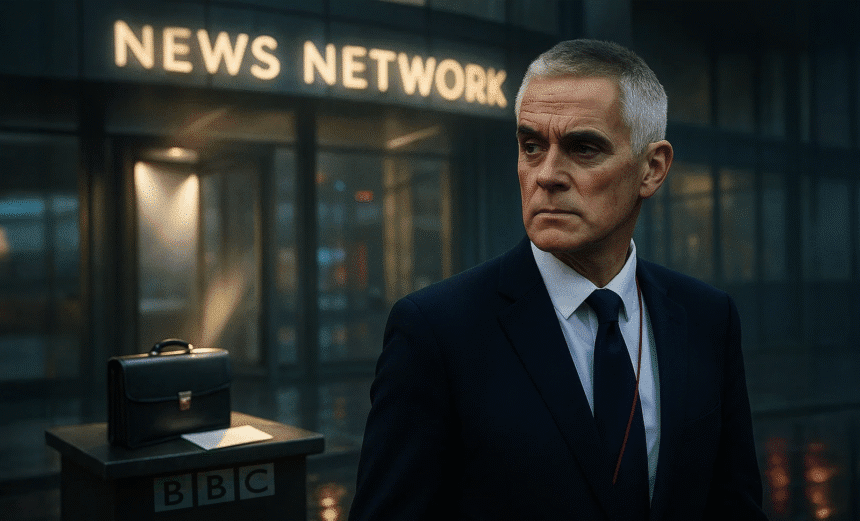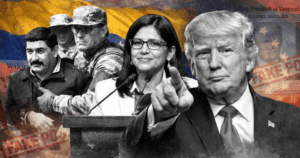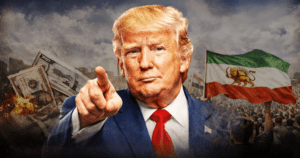Tim Davie, the Director-General of the BBC, announced his resignation on Sunday, November 9, 2025, marking the end of his five-year leadership of Britain’s national broadcaster. The decision comes amid mounting controversy and criticism surrounding the BBC’s editorial practices and growing political pressure. Davie, who became the 17th Director-General in September 2020, confirmed in his statement that stepping down was “entirely my decision,” citing the “intense personal and professional demands” of the role. His resignation, announced from the BBC’s London headquarters, has sent shockwaves through the British media landscape and reignited debate about the broadcaster’s impartiality and future direction.
Born in Croydon in 1967, Tim Davie is a seasoned media executive with a long history at the BBC. Before becoming Director-General, he held key positions including Director of BBC Studios and Head of Audio & Music. He was also honoured with a CBE for his services to international trade. Known for his managerial discipline and focus on restoring trust in the BBC, Davie initially took office at a time of digital transformation and cultural challenge within the corporation. His tenure saw major efforts to adapt the BBC to new streaming competitors, manage political scrutiny over the licence fee, and address accusations of bias in its coverage.
The immediate trigger for his resignation was the fallout from a recent Panorama documentary that included edited footage of former U.S. President Donald Trump’s January 6, 2021, speech. Critics accused the BBC of altering Trump’s words in a way that distorted his message, implying that he directly encouraged the storming of the U.S. Capitol. The segment sparked widespread backlash both domestically and abroad, with calls for accountability mounting across political and media circles. In his resignation statement, Davie acknowledged that “mistakes were made” and took full responsibility as Director-General, saying that “as the leader, I have to take ultimate responsibility.”
However, the Trump documentary controversy was only the latest in a string of issues. The BBC has faced multiple accusations of bias and editorial misjudgment in recent years, from its reporting on the Israel-Gaza conflict to debates over gender and trans rights. A particular flashpoint came in mid-2025 when the broadcaster aired a live performance at the Glastonbury Festival that featured anti-Israel chants, prompting criticism from both the public and political figures. In addition, a leaked internal memo from a former BBC consultant alleged “systemic and serious bias” across news coverage, reigniting calls for reform and transparency.
Davie’s decision to step down also coincides with a crucial period for the BBC, as negotiations approach for the renewal of its Royal Charter in 2027, the agreement that governs its funding and independence. Observers believe that Davie’s exit reflects not only personal accountability but also an institutional need for renewal before the charter review. He reportedly felt that continuing in his role could impede progress toward restoring public trust. In his farewell letter, he expressed pride in the organisation’s work, noting that “the BBC remains a cornerstone of British culture and democracy,” but admitted that “the challenges of this era require fresh leadership.”
The resignation of Deborah Turness, the BBC’s Head of News, just hours before Davie’s announcement, underscores the gravity of the internal crisis. Both resignations suggest a leadership shake-up at the top of Britain’s public service broadcaster. The BBC Board has confirmed that Davie will remain in office until a successor is appointed, ensuring continuity during the transition. Names of potential replacements are already circulating, with speculation focusing on executives from both within and outside the organisation.
Political commentators have described Davie’s departure as emblematic of the BBC’s struggle to balance impartiality in a polarised media landscape. Conservative critics have long accused the broadcaster of left-leaning bias, while progressive groups argue that its coverage often fails to challenge government narratives robustly enough. As the BBC faces renewed scrutiny over its public accountability and funding model, the leadership vacuum poses both a challenge and an opportunity to rebuild credibility.
In sum, Tim Davie’s resignation closes a significant chapter in BBC history. His five-year tenure was defined by efforts to modernise the corporation, defend its independence, and navigate an increasingly divisive media climate. Yet, the accumulation of editorial controversies and a crisis of trust ultimately forced his hand. As Britain’s most influential broadcaster prepares for its next phase, the spotlight now turns to who will lead the BBC through the delicate process of reform, regulation, and renewal.
















